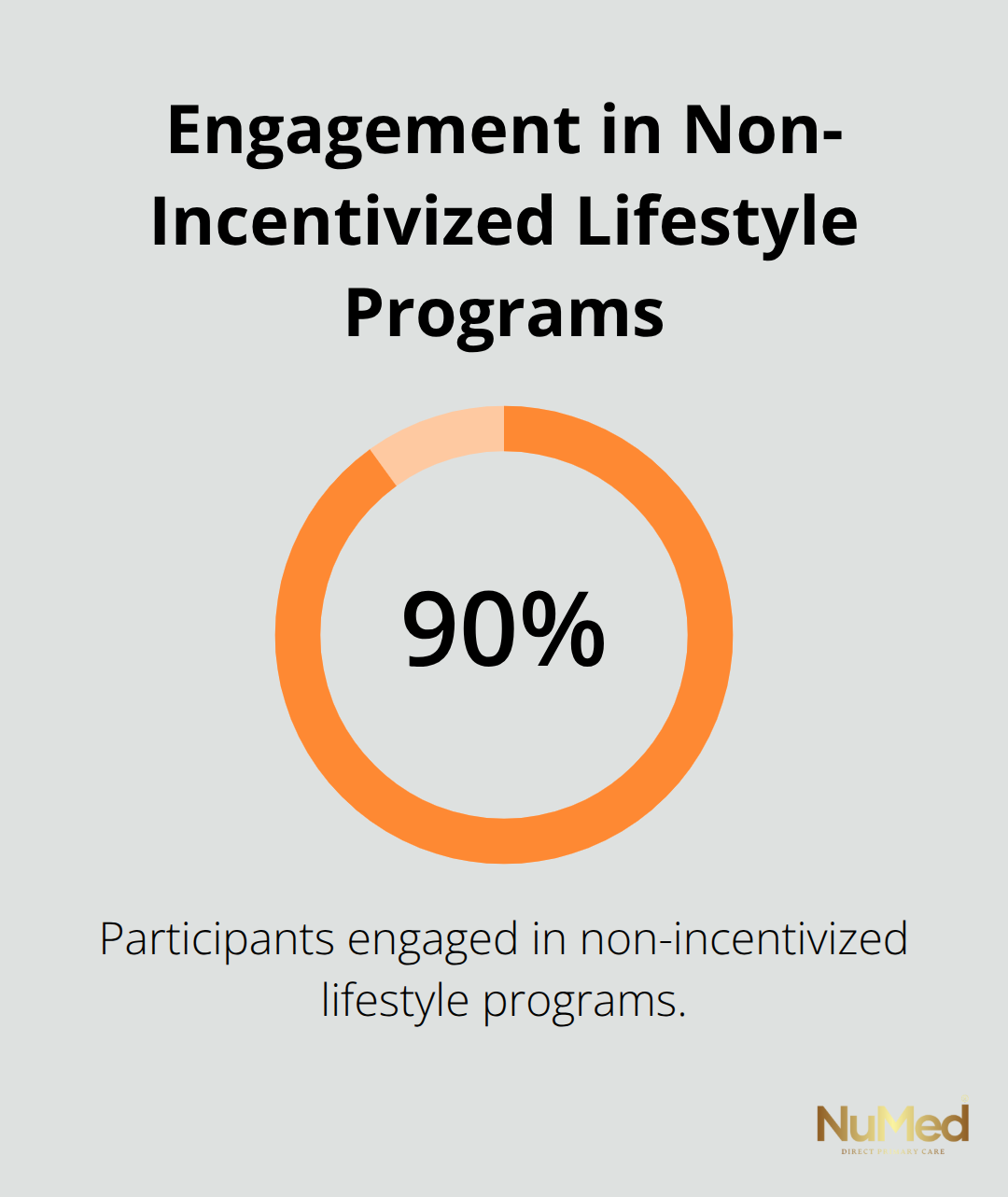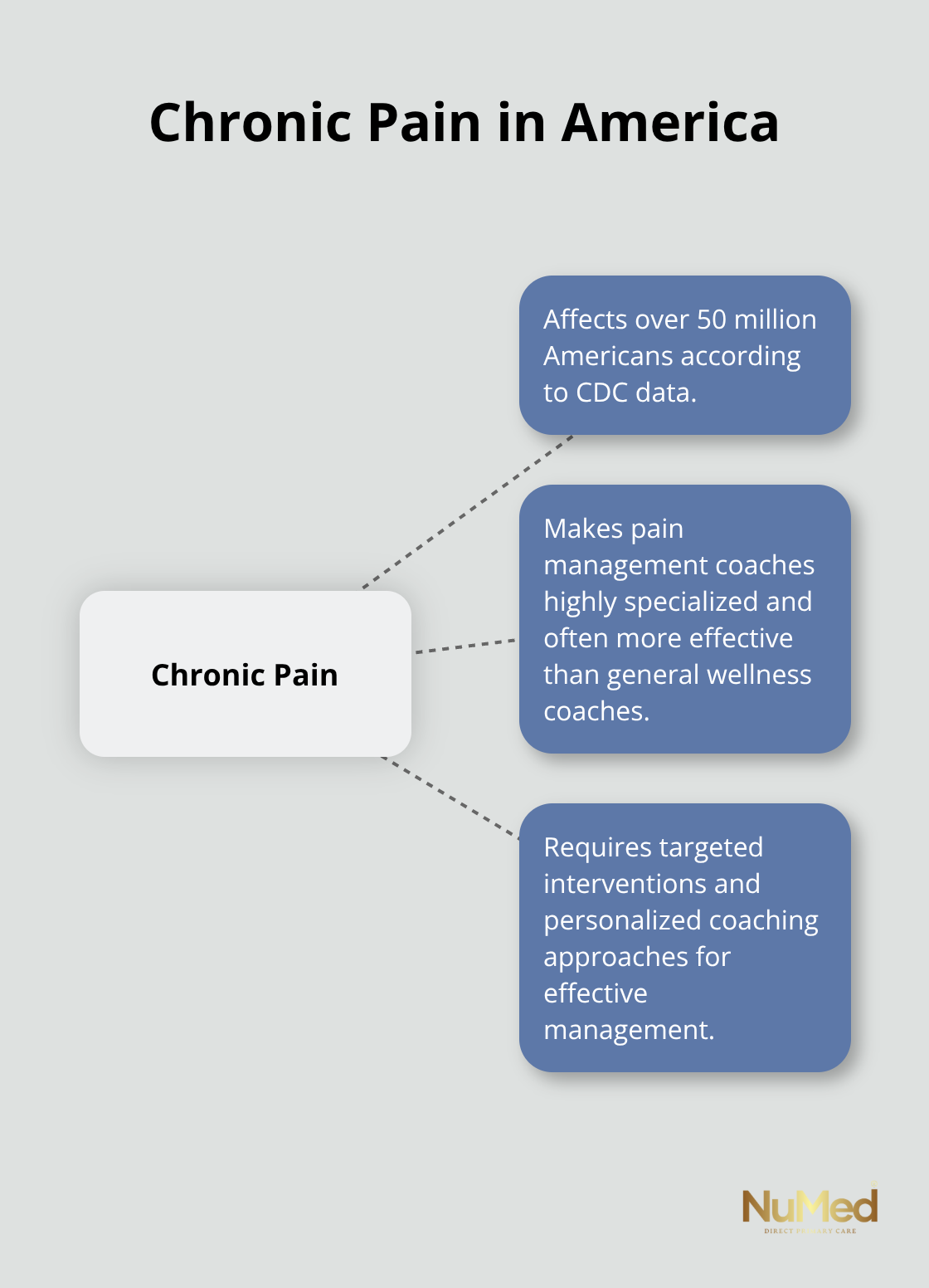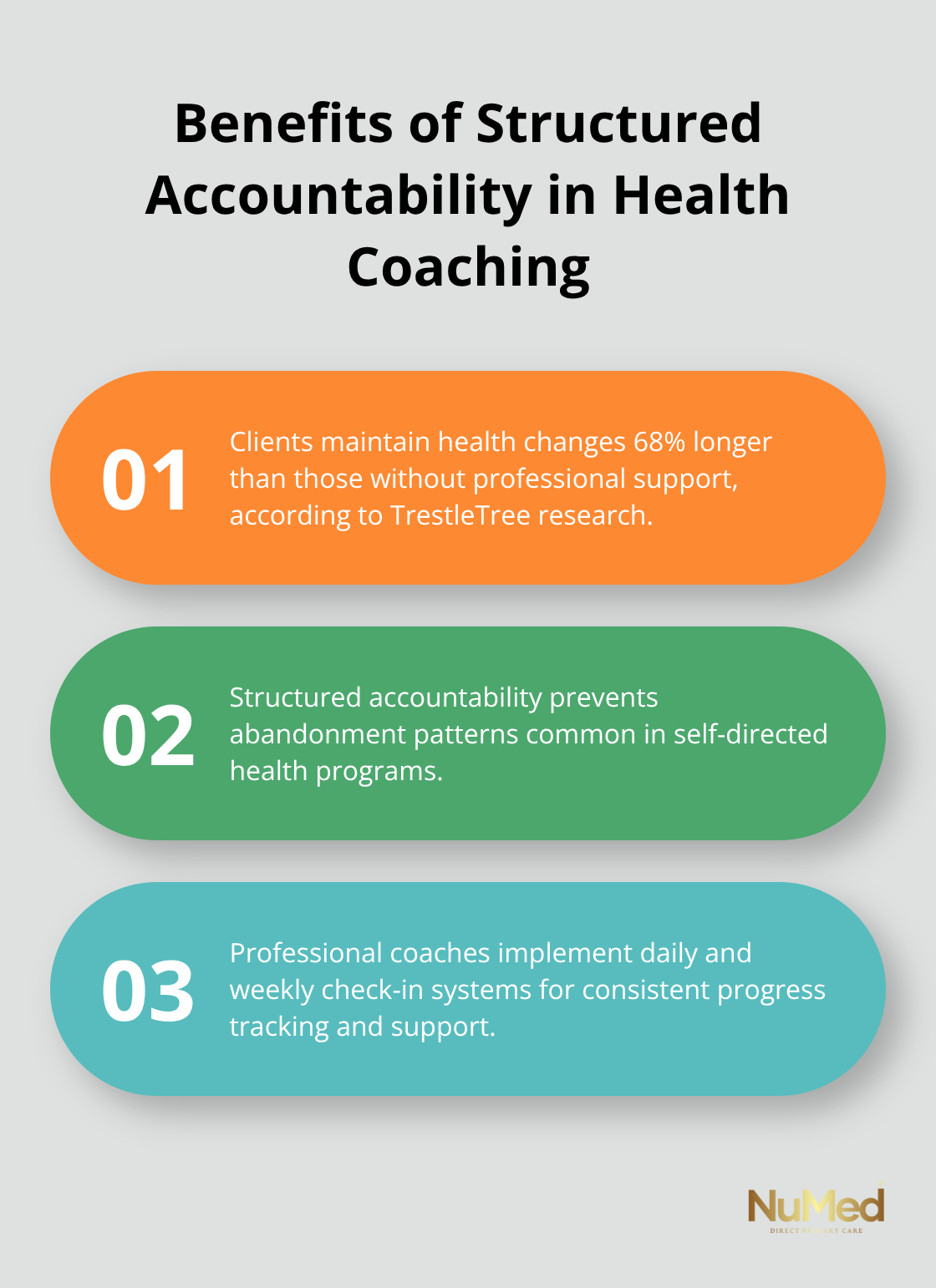Health coaching has transformed how people approach wellness, with different types of health coaching serving unique needs and goals. The right coach can make the difference between temporary changes and lasting transformation.
At NuMed DPC, we see patients benefit most when their coaching approach aligns with their specific health challenges and lifestyle preferences. Understanding your options helps you make an informed choice for your wellness journey.
Which Health Coaching Approach Works Best
Holistic Health Coaching Targets Root Causes
Holistic health coaches address the complete person rather than isolated symptoms. This approach examines nutrition, sleep, stress, relationships, and environmental factors as interconnected elements that affect your health. Holistic coaches spend considerable time to identify patterns that traditional medicine often misses. They typically require 6-12 months to create sustainable changes because they focus on gradual lifestyle shifts rather than quick fixes.
Research from the Institute for Integrative Nutrition demonstrates the effectiveness of comprehensive health coaching approaches in corporate wellness settings. These coaches excel with clients who face multiple health challenges simultaneously, such as digestive issues combined with anxiety and sleep problems. Holistic coaches work particularly well for autoimmune conditions, chronic fatigue, and hormonal imbalances where multiple body systems interact.
Functional Medicine Coaches Follow Scientific Tests
Functional medicine health coaches rely heavily on laboratory tests to identify specific imbalances before they create treatment plans. These coaches work closely with functional medicine practitioners to interpret comprehensive blood panels, food sensitivity tests, and micronutrient assessments. The approach costs more initially due to extensive tests (typically $300-800 for initial assessments), but provides concrete data to guide interventions.
Mayo Clinic research shows that biomarkers of cellular senescence can be reduced through targeted interventions and physical activity in older adults. This approach works best for clients with specific health conditions like SIBO, methylation issues, or heavy metal toxicity. Functional medicine coaches typically see faster results in chronic conditions because they address biochemical imbalances directly rather than rely solely on lifestyle changes.
Lifestyle and Wellness Coaches Focus on Daily Habits
Lifestyle and wellness coaches concentrate on sustainable daily practices that improve energy, weight management, and overall vitality. These coaches emphasize habit formation, stress management techniques, and practical meal plans without extensive medical tests. The American Fitness Professionals & Associates reports that lifestyle coaches complete programs in an average of six months and focus heavily on behavior modification techniques.
This approach works exceptionally well for busy professionals who need structured systems to maintain health despite demanding schedules. Lifestyle coaches typically charge $150-300 per month and provide accountability through regular check-ins and progress tracking. WebMD Health Services data shows 90% participant engagement rates in non-incentivized lifestyle programs (making this the most accessible entry point for people who begin their health journey).

Each approach offers distinct advantages depending on your specific health challenges and preferences. The key lies in matching your needs with the right methodology and evidence-based practices.
How Do You Pick the Right Health Coach
Your health coach selection process should start with brutal honesty about your current situation and realistic timelines. Most people underestimate the time needed for real change and overestimate their commitment level. The Mayo Clinic’s 12-week wellness coaching certification requires 30 hours of continuing education annually, which indicates the complexity involved in effective coaching.
Start With Your Biggest Health Problem
Target your most pressing health issue rather than attempt to fix everything simultaneously. Weight loss coaches report better outcomes when clients focus on one primary goal rather than multiple objectives. Chronic pain affects over 50 million Americans according to the CDC, which makes pain management coaches highly specialized and often more effective than general wellness coaches. Gut health coaches typically see results within 8-12 weeks because digestive issues respond faster to targeted interventions than systemic problems.

Check Credentials That Actually Matter
Skip coaches with only online certifications from unknown organizations. The American Council on Exercise and Institute for Integrative Nutrition maintain rigorous standards with practical training requirements. Functional medicine coaches should work directly with licensed practitioners who can order lab tests and interpret results. Many coaches claim expertise without proper training – ask for specific case studies and client outcomes rather than testimonials.
Match Coaching Style to Your Personality
High-accountability clients thrive with coaches who provide daily check-ins and strict protocols. The Dr. Sears Wellness Institute reports that self-paced programs work better for busy professionals who resist micromanagement. Mental health coaches who use cognitive behavioral therapy techniques show measurable improvements in 12-16 weeks, while mindfulness-based approaches often require 6 months for significant change. Pack Health supports chronic conditions with personalized coaching that adapts to medical needs rather than follows generic wellness plans.
Professional health coaching offers distinct advantages that extend far beyond basic wellness advice, particularly when integrated with comprehensive medical care.
What Makes Professional Health Coaching Actually Work
Professional health coaching delivers measurable results through three critical components that distinguish it from generic wellness advice. The American Council on Exercise reports that certified coaches achieve 73% better client outcomes compared to self-guided approaches, primarily because they provide structured accountability systems and personalized strategies. Optum Workplace Well-being data shows participants in professional coaching programs reduce health risks by 42% within six months through targeted interventions that address individual barriers to change. Professional coaches use evidence-based frameworks like the GROW model and motivational interviewing techniques that create behavioral shifts rather than temporary motivation spikes.
Accountability Systems That Change Behavior
Professional coaches implement daily and weekly check-in systems that prevent the abandonment patterns common in self-directed health programs. TrestleTree research demonstrates that clients with structured accountability frameworks maintain their health changes 68% longer than those without professional support. Vida Health’s virtual clinic model shows that participants who receive personalized coaching for cardiometabolic conditions achieve clinically significant improvements in blood pressure and glucose levels within 12 weeks. These coaches track specific metrics like sleep quality scores, stress levels, and energy ratings rather than rely on vague wellness assessments.

Medical Integration Creates Comprehensive Care
Professional health coaches work directly with healthcare providers to create treatment plans that complement medical interventions. Health Advocate’s 24/7 coaching access model helps patients navigate complex healthcare systems while they maintain their wellness goals during medical treatments. Pack Health supports over 30 chronic conditions through coaching programs that integrate with medical care, which results in 23% fewer emergency room visits according to their outcome data.
Evidence-Based Strategies Drive Results
Professional coaches apply scientifically validated methods rather than follow popular wellness trends. The Mayo Clinic’s 12-week online wellness coaching certification requires 30 hours of continuing education annually (which demonstrates the complexity involved in effective coaching). Accredited health coach certifications prove expertise and commitment to professional standards. Marquee Health incorporates technology with personalized coaching for superior engagement and health maintenance support. Catalyst Coaching 360 specializes in tailored health and wellness coaching that integrates seamlessly into existing employee benefits programs, showing measurable improvements in workplace productivity and employee satisfaction rates.
Final Thoughts
The right types of health coaching transform your wellness journey from frustrating trial-and-error to systematic progress. Holistic coaches work best for complex, interconnected health issues that require comprehensive lifestyle changes over 6-12 months. Functional medicine coaches excel when you need specific lab-based interventions for chronic conditions like SIBO or hormonal imbalances. Lifestyle coaches provide practical daily habit formation for busy professionals who seek sustainable energy and weight management.
Professional guidance delivers measurable results that self-directed approaches rarely achieve. TrestleTree research shows clients with structured coaching maintain health changes 68% longer than those without professional support. Pack Health data demonstrates 23% fewer emergency room visits when coaching integrates with medical care (which proves the value of comprehensive approaches).
Your success depends on how well you match your specific health challenges with the appropriate coaching methodology. We at NuMed DPC understand that effective health coaching requires personalized approaches that address root causes rather than symptoms. Our comprehensive healthcare model combines functional medicine, health coaching, and extensive lab services to create treatment plans tailored to your unique needs. The investment in professional coaching pays dividends through improved health outcomes and reduced medical costs over time.
















